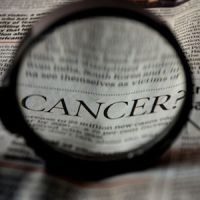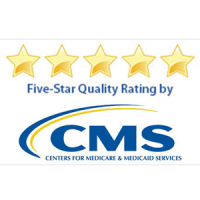In a manifesto, a group of eminent oncologists note how the steep prices of cancer drugs are affecting the care of patients with cancer. They cite data showing that in 2014 all new FDA-approved cancer drugs were priced above $120,000 per year of use. They are calling for a reduction in drug prices.
While the skyrocketing drug prices may be driving the cost of cancer care, some doctors and other sectors say the costs associated with hospital care need to be addressed as well. The pharmaceutical industry contends that, based on research data, drugs and chemotherapy only account for 20 percent of the cost of cancer care and one percent of all healthcare spending.
Ted Okon, executive director of the non-profit Community Oncology Alliance, argues that doctors should be addressing the overall cost of cancer care, not just the price of chemotherapy and medications. "I believe that the 118 oncologists have every right to raise the issue of drug pricing, (but) they have to realise that the drug price is only part of the equation," he points out.
The oncologists who published their manifesto online in the journal Mayo Clinic Proceedings are affiliated with some of the most prestigious hospitals in cancer care and research, including the University of Texas MD Anderson Cancer Center in Houston, the Dana Farber Cancer Institute in Boston, and Memorial Sloan Kettering Cancer Center in New York City.
Faced with high costs and copays, the oncologists note that "Patients with cancer then have to make difficult choices between spending their incomes (and liquidating assets) on potentially lifesaving therapies or foregoing treatment to provide for family necessities (food, housing, education)." They call for a "cancer patient-based grassroots movement" to push for changes to allow Medicare to negotiate drug prices and allow patients to import lower cost drugs from Canada.
In addition to drugs, the cost of cancer care can include surgery, lab tests, office visits, and imaging. In 2014, doctors at MD Anderson treated 127,00 patients, performed 69,506 hours of surgery and ordered 12 million lab tests and more than a half million diagnostic imaging procedures.
Okon's organisation represents oncologists who practice outside of the hospital setting. He says that the hospital-based doctors who signed on to the Mayo article should recognise and address not just the cost of drugs, but the cost of services such as inpatient and emergency department care. His critique also comes at a time when oncologists, like other specialists, are closing private practices and affiliating with hospitals.
For his part, Dr. Lowell E. Schnipper, clinical director of the Beth Israel Deaconess Cancer Center, says the issue of cancer care costs is "really complex. The short answer is that the rising costs associated with cancer care are multifactorial."
Drugs may not be the driving factor in cancer costs, Dr. Schnipper notes, but the price of medications is increasing much more rapidly on an annual basis than the cost of any other aspect of cancer care.
Source: Mayo Clinic Proceedings
Image credit: Flickr.com
While the skyrocketing drug prices may be driving the cost of cancer care, some doctors and other sectors say the costs associated with hospital care need to be addressed as well. The pharmaceutical industry contends that, based on research data, drugs and chemotherapy only account for 20 percent of the cost of cancer care and one percent of all healthcare spending.
Ted Okon, executive director of the non-profit Community Oncology Alliance, argues that doctors should be addressing the overall cost of cancer care, not just the price of chemotherapy and medications. "I believe that the 118 oncologists have every right to raise the issue of drug pricing, (but) they have to realise that the drug price is only part of the equation," he points out.
The oncologists who published their manifesto online in the journal Mayo Clinic Proceedings are affiliated with some of the most prestigious hospitals in cancer care and research, including the University of Texas MD Anderson Cancer Center in Houston, the Dana Farber Cancer Institute in Boston, and Memorial Sloan Kettering Cancer Center in New York City.
Faced with high costs and copays, the oncologists note that "Patients with cancer then have to make difficult choices between spending their incomes (and liquidating assets) on potentially lifesaving therapies or foregoing treatment to provide for family necessities (food, housing, education)." They call for a "cancer patient-based grassroots movement" to push for changes to allow Medicare to negotiate drug prices and allow patients to import lower cost drugs from Canada.
In addition to drugs, the cost of cancer care can include surgery, lab tests, office visits, and imaging. In 2014, doctors at MD Anderson treated 127,00 patients, performed 69,506 hours of surgery and ordered 12 million lab tests and more than a half million diagnostic imaging procedures.
Okon's organisation represents oncologists who practice outside of the hospital setting. He says that the hospital-based doctors who signed on to the Mayo article should recognise and address not just the cost of drugs, but the cost of services such as inpatient and emergency department care. His critique also comes at a time when oncologists, like other specialists, are closing private practices and affiliating with hospitals.
For his part, Dr. Lowell E. Schnipper, clinical director of the Beth Israel Deaconess Cancer Center, says the issue of cancer care costs is "really complex. The short answer is that the rising costs associated with cancer care are multifactorial."
Drugs may not be the driving factor in cancer costs, Dr. Schnipper notes, but the price of medications is increasing much more rapidly on an annual basis than the cost of any other aspect of cancer care.
Source: Mayo Clinic Proceedings
Image credit: Flickr.com
References:
Tefferi A, Kantarjian H, Rajkumar SV et al. (2015) In Support of a Patient-Driven Initiative and Petition to Lower the High Price of Cancer Drugs. Mayo Clinic Proceedings, July 23, 2015. DOI:
http://dx.doi.org/10.1016/j.mayocp.2015.06.001
Latest Articles
healthmanagement, cancer, cancer drugs, Mayo Clinic, oncologists, diagnostic imaging
In a manifesto, a group of eminent oncologists note how the steep prices of cancer drugs are affecting the care of patients with cancer. They cite data showing that in 2014 all new FDA-approved cancer drugs were priced above $120,000 per year of use.



























